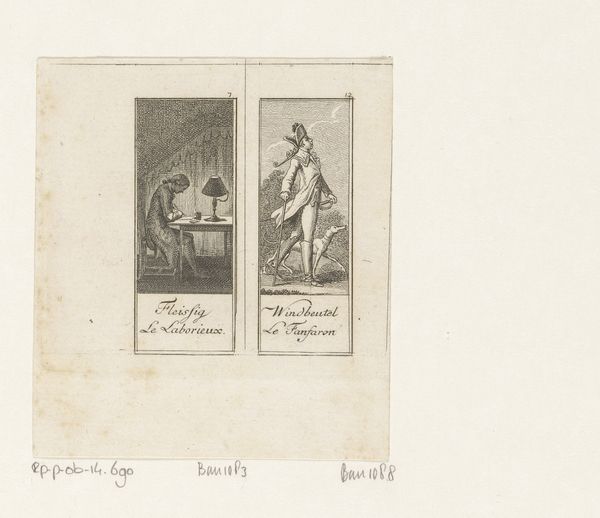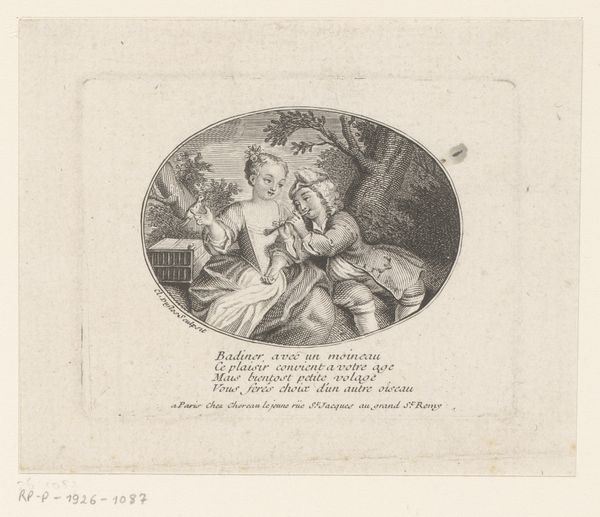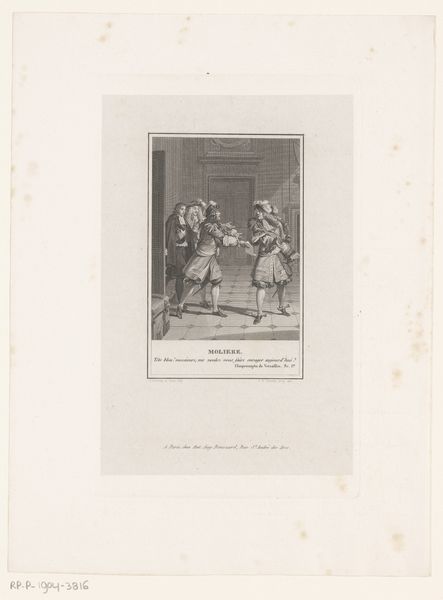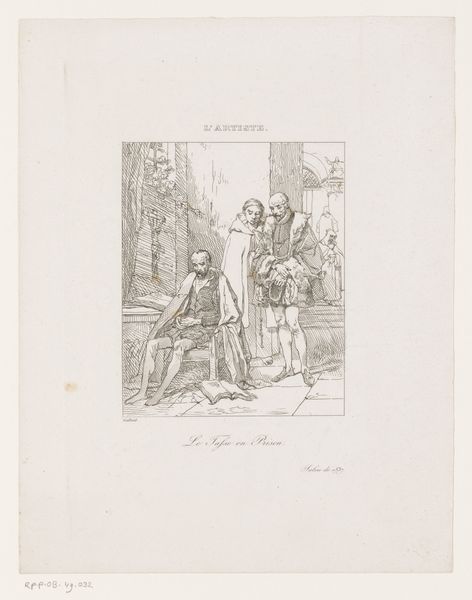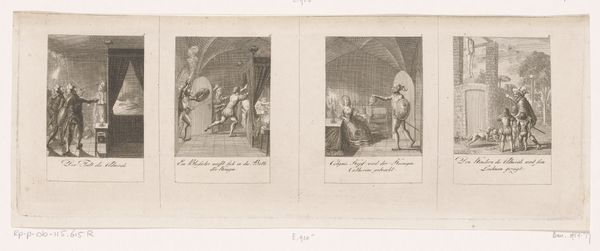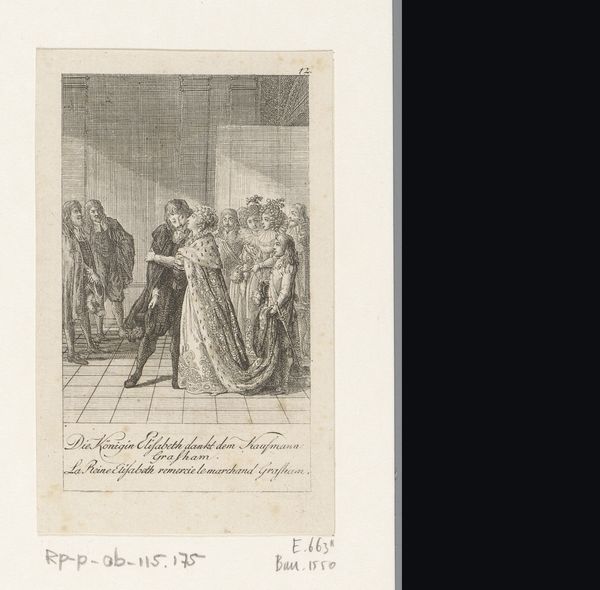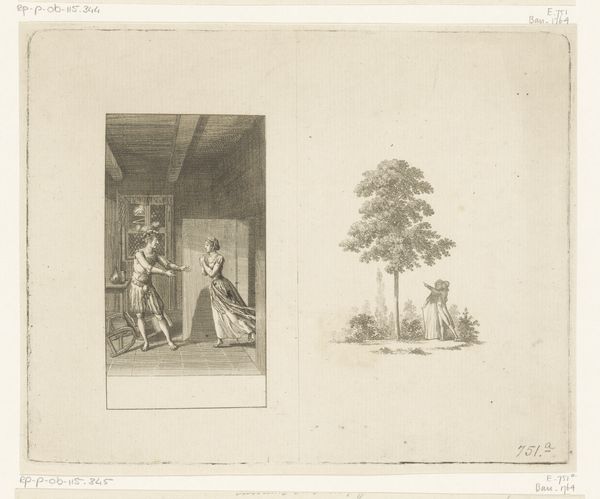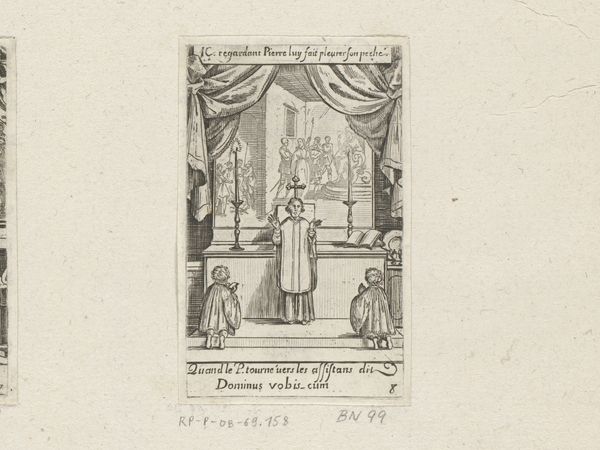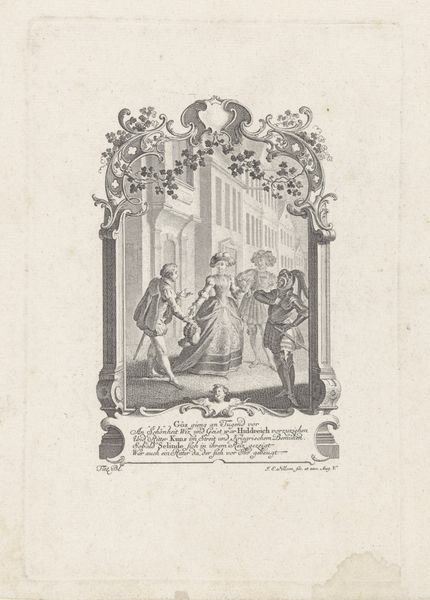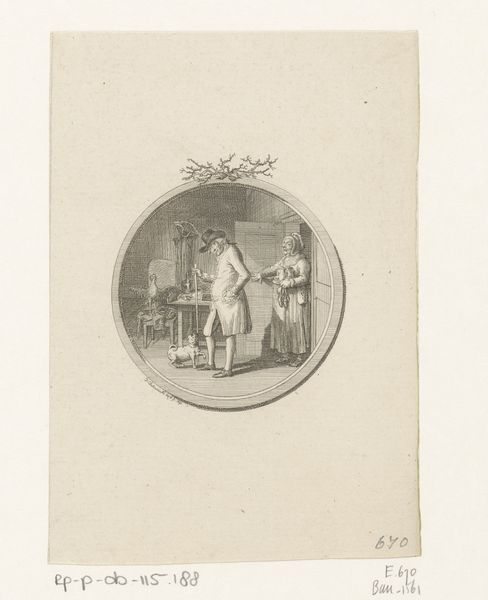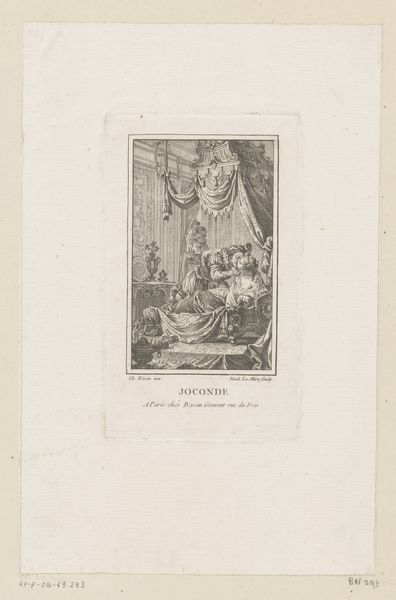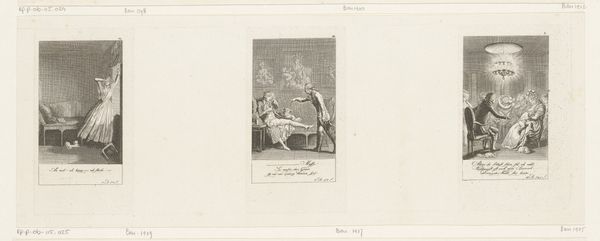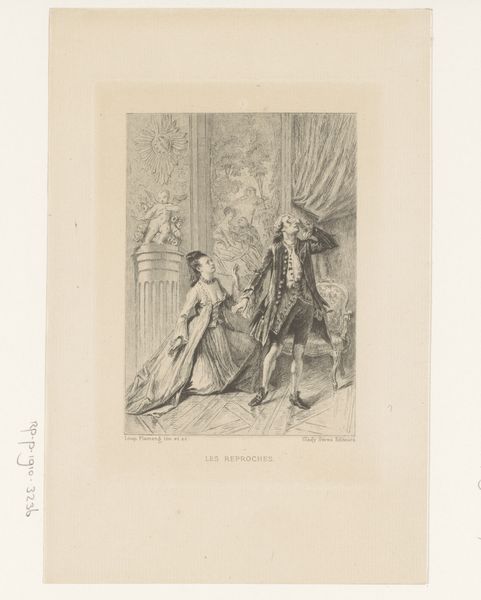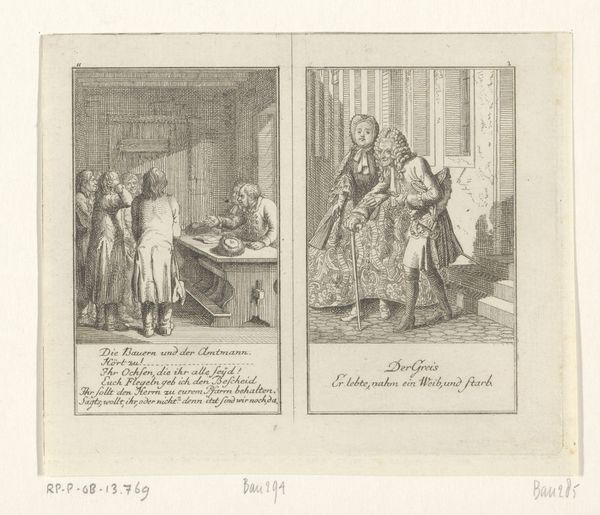
print, etching, engraving
# print
#
etching
#
old engraving style
#
figuration
#
romanticism
#
history-painting
#
engraving
Dimensions: height 170 mm, width 213 mm
Copyright: Rijks Museum: Open Domain
Daniel Nikolaus Chodowiecki made this print, “Nanette en Albert in de blokhut,” using etching, a process deeply connected to the rise of mass media. Etching involves coating a metal plate with wax, scratching an image into it, and then submerging it in acid. The acid bites into the exposed metal, creating grooves that hold ink. This plate can then be used to produce multiple impressions on paper. Look closely and you can see the fine lines created by the etching. Chodowiecki's skill is evident in his ability to render delicate details, like the folds of fabric in Nanette's dress, and the texture of the cabin's interior, despite the constraints of the medium. Prints like these democratized images, bringing art to a wider audience. While painting and sculpture remained the realm of the wealthy, prints could be acquired by the emerging middle class. They speak to the growth of the publishing industry and a culture increasingly reliant on visual information. Recognizing the material and social context of etching allows us to see this print not just as a representation, but as an artifact of its time.
Comments
No comments
Be the first to comment and join the conversation on the ultimate creative platform.
